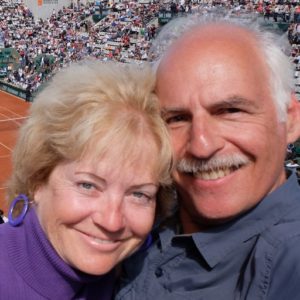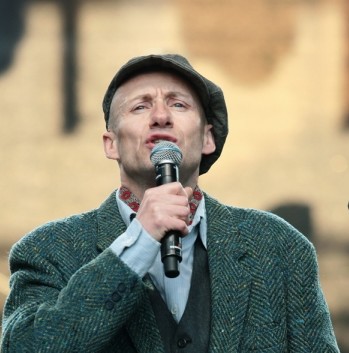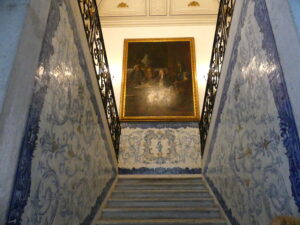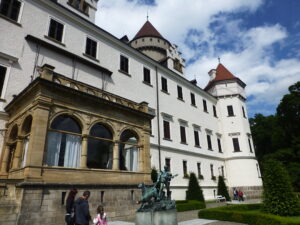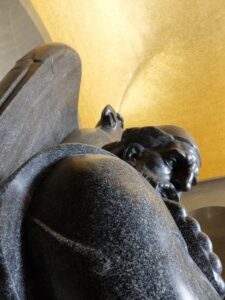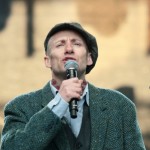
What is the language of love? The tongue-twirling lyublu? The kissy kissy amour? The caress of amore? The abruptness of love? The explosive finish to liebe? Or the business-like Estonian armastus?
We thought about these differences at a multi-lingual concert in Tallinn belatedly celebrating the 100th birthday of Edith Piaf with a set of 15 songs associated with her, nearly all about the experience and follies of love in one of the best languages of love, French.
We adore the music, particularly in a cabaret setting. So it was delightful to nestle down amid the café tables in Tallinn’s Winter Garden Cafe, or Talvaaed. That somewhat austere, unadorned room spans the space joining the two parts of the main music venues in town, the Estonian Opera House and Concert Hall. A large number of plastic trees and plants at least gave the place a greenhouse look.
The tables were nearly full, a good crowd on a Tuesday night of about 100. Most of them were elderly women, though a few hardy men accompanied their partners for the event. One stalwart fellow was surrounded by five women at his table. Of the few younger men, most came in couples.
On stage, the backup group included a capable bass and piano player, as well as an accordionist, Jaak Lutsoja, who was superb. He provided the main accompaniment to the singer, but improvised deftly on the breaks and introduced striking sound effects to add emotional impact to the songs.
Surprisingly the singer was physically just the opposite of Piaf. Erkki Otsman was a lanky man with a shaven head, and a very pliable face, where Piaf was slight, short and curly-haired. But his low tenor voice was up to the task of imitating her husky voice as well as her expressiveness. He should know how: he’s been doing Piaf songs for over 20 years and won prizes from “Les Amis d’Edith Piaf” association. Otsman might have felt somewhat hamstrung by the need to emulate her style, but his delight and capability in the songs shone through.
Our only problem was language. After a brief introduction in a variety of languages including English and French, the rest of the concert unfolded in either Estonian or French. All the introductions he made to the songs were in Estonian so we missed out on his explanations and biographical context. But we could have expected that.
Happily, Otsman sang most of the songs in their original French, carefully like a non-native speaker often does in a foreign language. We could generally decipher the lyrics particularly with the help of our phones to follow along. Displaying the lyrics in some way might have helped everyone, but we understood that they also distract from attention to the performance itself. For the benefit of the local crowd, he even sang a few songs in Estonian. These sounded fairly mellifluous anyway, though typically we had no idea what he was singing.
Perhaps the French lyrics posed some difficulty for the Estonians too, for the audience didn’t seem all that enthusiastic. They did pretty well with rhythmic clapping to some of the more exuberant songs. But they were a tough crowd to rouse when called upon to sing the repeated closing line in “La goualante de Pauvre Jean”…On n’est rien du tout, i.e., [Without love,] we are nothing at all.
Or perhaps, as we had been warned, the older Estonian generation could be quite dour and reserved after growing up under Soviet rule. That must make it particularly tough to sing out loudly about amour, liebe or armastus, whatever the language.
(Also, for more pictures from Estonia and the Baltics, CLICK HERE to view the slideshow at the end of the Baltics itinerary page.)
